Ed Gorman's Blog, page 10
January 2, 2016
The Beatles For Christmas December 29th, 2015 by Max Allan Collins
The Beatles For ChristmasDecember 29th, 2015 by Max Allan Collins
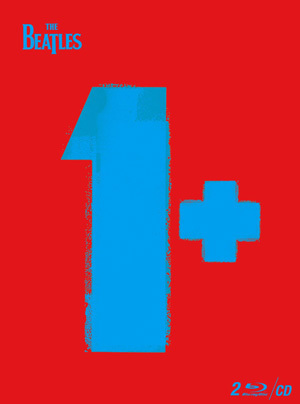 Let’s start with a subject that doesn’t seem to have much if anything to do with the heading here.
Let’s start with a subject that doesn’t seem to have much if anything to do with the heading here.
Barb and I recently bought a new car, an Equinox. But I had already signed the papers before I discovered that it did not include a CD player. I told Barb, meaning every word of it, that had I known – and learned that no CD player is available for that or any GMC model – I wouldn’t have traded our several-years-old Equinox for this shiny new one. That I would have driven the older model until either it or its CD player sputtered and died.
We do a lot of short-hop traveling – food and fun in the Chicago suburbs, visiting Nate and Abby and Sam in St. Louis, getaways to Galena IL, shopping trips to Des Moines. A good part of what makes these trips fun is listening to music or an audio book, to and from. Like a lot of you, I would imagine, I have a big collection of audio books on CD, including Rex Stout, Agatha Christie, and for that matter a lot of my own stuff. The pleasure of hearing Stacy Keach read one of the Mike Hammer novels of Mickey’s and mine is a truly transcendent experience for me.
And my CD collection of music, as you might imagine, is ridiculously large.
But the automobile manufacturers have decided I don’t need a CD player anymore (just as a few years ago they decided I didn’t need a cassette player). They give not a single shit that I have a large library of CDs, or that millions of others also have similar libraries. After all, they provide ports for flash drives and input access for your smart phone and so on.
I have mentioned this to others, and not just baby boomers, and they are appalled to learn their next new car will be CD-player-less. Right now on PBS Membership drives, CD packages are being offered to participating viewers, often with a direct pitch about the joy of listening to these classic tunes in their car. Infomercials do the same. Vintage radio outfits continue to offer their product exclusively on CD, and Best Buy and other retailers continue to sell the little silver discs (albeit giving them less real estate).
Only now, if I want to listen to one of my CDs, I have to use a fairly ancient Sony Walkman that I can play through the AUX of my “infotainment center” (God help us!), which requires various wires being snaked here and there, cluttering up that shiny new car.
That I can play my phone through my radio (yes, radio, that’s what I call it) has turned out to be as close to a saving grace as I’m liable to find in this sorry situation. My son taught me to load a bunch of albums available “free” as an Amazon Prime member. Also, the purchase of some CDs at Amazon provides a free “auto-rip,” which is to say a digital version that plays on your smart phone. Wistfully, I remember a day when my phone wasn’t smarter than me….
This solution is less than ideal, because other than the “free” downloads Amazon Prime provides, and those CDs that have included digital versions, I am left with countless CDs that no longer have a home in my dashboard.
So. One of my Christmas presents (from my lovely wife) was a $100 gift card at Amazon. This I spent buying nine albums I already own so that I could download them onto my phone. Bobby Darin, the Zombies, Paul Williams, and so on. Scratching the surface (like my needle used to on vinyl) of my CD collection.
As for the Stout, Christies and even Collins books that I have on CD, I have to make use of Amazon’s Audible, which is not free…though their yearly membership gives you quite a few credits for a decent price. That same evening I spent my hundred bucks on albums I already own on CD, I used up half of my credits buying Nero Wolfe books that, yes, you guessed it, I already own. And by the way, not every Wolfe novel is available.
Wasn’t this supposed to be about the Beatles?
Well, as you may have heard or read, Beatles albums are finally downloadable on multiple platforms. Almost everything of the Beatles is “free” (I insist on the quotes) if you’re an Amazon Prime member (not free, no quotes required). So I gorged myself on Beatles. Filled my digital library with ‘em. (Make that “library.”)
I love the Beatles, at least up through and including REVOLVER. After that, it gets spotty for me, possibly because I think LSD conspired with that Indian guru to at least partially ruin the Beatles. I have a few friends – terribly confused individuals, like the otherwise sane Ed Gorman – who hate the Beatles, and prefer the Stones. (Nothing against the Stones, and for that matter I like pretty much all of the British invasion bands from clean-cut Herman’s Hermits to scruffy Them, from the power-pop Dave Clark Five to the growling Animals. And the Zombies, my lord, the Zombies….)
Here’s the thing. If you were in junior high or high school when the Beatles appeared on Ed Sullivan, and like everybody on the planet you saw those appearances, your life changed. A rock band playing their own instruments. Memorable pop tunes and smart covers. Four immediately strong personalities. Infectious humor. Lead singing and harmony that thrilled even while eschewing the slickness of what professional singing was supposed to sound like.
As for the Stones, the Beatles wrote their first hit for them (a UK one, “I Wanna Be Your Man,” if I recall correctly). They would have never made it into the culture without the benefit of the Beatles. No British group would have.
The current Beatles CD and Blu-ray release “1″ was another great Christmas present from my lovely bride, and that’s why all of its songs turned up instantly in my downloadable library at Amazon. I got the most tricked-out version, with a CD but also two Blu-rays of performances and music videos. I will admit to you that I have a sentimental streak, and it was glowing as I watched the boys grow and change, and as all those memories flooded back in. I’d been involved in music my entire life, but never would have dreamed of being in a band…until the Beatles on Ed Sullivan.
Do I have to say that the world changed, too, because of these four? That hair styles – my father bribed my barber to cut off my Beatle-length hair – would symbolize the generational rift even before Vietnam was a Thing? That they were at the forefront, for better or worse, of psychedelia? That they were always several steps ahead of their competition? That they quit while they were way, way ahead?
So much more could be said, but I have to mention the poignance of seeing how much Paul and John liked each other, how they laughed and interacted. They were lads. By the time they were men, it was over. One last rooftop mini-concert and out.
It was rock ‘n’ roll, yes, but it was so much more. If you were there, and didn’t notice it – or refuse now to recognize it – you don’t quite understand the second half of the Twentieth Century.
As for the Twenty-first Century, I now have to listen to the Beatles, baby, when I drive my car…listening to them, that is, on my phone.
I will have something a bit special to say here next week, but until them…Happy New Year.
M.A.C.
 Let’s start with a subject that doesn’t seem to have much if anything to do with the heading here.
Let’s start with a subject that doesn’t seem to have much if anything to do with the heading here.Barb and I recently bought a new car, an Equinox. But I had already signed the papers before I discovered that it did not include a CD player. I told Barb, meaning every word of it, that had I known – and learned that no CD player is available for that or any GMC model – I wouldn’t have traded our several-years-old Equinox for this shiny new one. That I would have driven the older model until either it or its CD player sputtered and died.
We do a lot of short-hop traveling – food and fun in the Chicago suburbs, visiting Nate and Abby and Sam in St. Louis, getaways to Galena IL, shopping trips to Des Moines. A good part of what makes these trips fun is listening to music or an audio book, to and from. Like a lot of you, I would imagine, I have a big collection of audio books on CD, including Rex Stout, Agatha Christie, and for that matter a lot of my own stuff. The pleasure of hearing Stacy Keach read one of the Mike Hammer novels of Mickey’s and mine is a truly transcendent experience for me.
And my CD collection of music, as you might imagine, is ridiculously large.
But the automobile manufacturers have decided I don’t need a CD player anymore (just as a few years ago they decided I didn’t need a cassette player). They give not a single shit that I have a large library of CDs, or that millions of others also have similar libraries. After all, they provide ports for flash drives and input access for your smart phone and so on.
I have mentioned this to others, and not just baby boomers, and they are appalled to learn their next new car will be CD-player-less. Right now on PBS Membership drives, CD packages are being offered to participating viewers, often with a direct pitch about the joy of listening to these classic tunes in their car. Infomercials do the same. Vintage radio outfits continue to offer their product exclusively on CD, and Best Buy and other retailers continue to sell the little silver discs (albeit giving them less real estate).
Only now, if I want to listen to one of my CDs, I have to use a fairly ancient Sony Walkman that I can play through the AUX of my “infotainment center” (God help us!), which requires various wires being snaked here and there, cluttering up that shiny new car.
That I can play my phone through my radio (yes, radio, that’s what I call it) has turned out to be as close to a saving grace as I’m liable to find in this sorry situation. My son taught me to load a bunch of albums available “free” as an Amazon Prime member. Also, the purchase of some CDs at Amazon provides a free “auto-rip,” which is to say a digital version that plays on your smart phone. Wistfully, I remember a day when my phone wasn’t smarter than me….
This solution is less than ideal, because other than the “free” downloads Amazon Prime provides, and those CDs that have included digital versions, I am left with countless CDs that no longer have a home in my dashboard.
So. One of my Christmas presents (from my lovely wife) was a $100 gift card at Amazon. This I spent buying nine albums I already own so that I could download them onto my phone. Bobby Darin, the Zombies, Paul Williams, and so on. Scratching the surface (like my needle used to on vinyl) of my CD collection.
As for the Stout, Christies and even Collins books that I have on CD, I have to make use of Amazon’s Audible, which is not free…though their yearly membership gives you quite a few credits for a decent price. That same evening I spent my hundred bucks on albums I already own on CD, I used up half of my credits buying Nero Wolfe books that, yes, you guessed it, I already own. And by the way, not every Wolfe novel is available.
Wasn’t this supposed to be about the Beatles?
Well, as you may have heard or read, Beatles albums are finally downloadable on multiple platforms. Almost everything of the Beatles is “free” (I insist on the quotes) if you’re an Amazon Prime member (not free, no quotes required). So I gorged myself on Beatles. Filled my digital library with ‘em. (Make that “library.”)
I love the Beatles, at least up through and including REVOLVER. After that, it gets spotty for me, possibly because I think LSD conspired with that Indian guru to at least partially ruin the Beatles. I have a few friends – terribly confused individuals, like the otherwise sane Ed Gorman – who hate the Beatles, and prefer the Stones. (Nothing against the Stones, and for that matter I like pretty much all of the British invasion bands from clean-cut Herman’s Hermits to scruffy Them, from the power-pop Dave Clark Five to the growling Animals. And the Zombies, my lord, the Zombies….)
Here’s the thing. If you were in junior high or high school when the Beatles appeared on Ed Sullivan, and like everybody on the planet you saw those appearances, your life changed. A rock band playing their own instruments. Memorable pop tunes and smart covers. Four immediately strong personalities. Infectious humor. Lead singing and harmony that thrilled even while eschewing the slickness of what professional singing was supposed to sound like.
As for the Stones, the Beatles wrote their first hit for them (a UK one, “I Wanna Be Your Man,” if I recall correctly). They would have never made it into the culture without the benefit of the Beatles. No British group would have.
The current Beatles CD and Blu-ray release “1″ was another great Christmas present from my lovely bride, and that’s why all of its songs turned up instantly in my downloadable library at Amazon. I got the most tricked-out version, with a CD but also two Blu-rays of performances and music videos. I will admit to you that I have a sentimental streak, and it was glowing as I watched the boys grow and change, and as all those memories flooded back in. I’d been involved in music my entire life, but never would have dreamed of being in a band…until the Beatles on Ed Sullivan.
Do I have to say that the world changed, too, because of these four? That hair styles – my father bribed my barber to cut off my Beatle-length hair – would symbolize the generational rift even before Vietnam was a Thing? That they were at the forefront, for better or worse, of psychedelia? That they were always several steps ahead of their competition? That they quit while they were way, way ahead?
So much more could be said, but I have to mention the poignance of seeing how much Paul and John liked each other, how they laughed and interacted. They were lads. By the time they were men, it was over. One last rooftop mini-concert and out.
It was rock ‘n’ roll, yes, but it was so much more. If you were there, and didn’t notice it – or refuse now to recognize it – you don’t quite understand the second half of the Twentieth Century.
As for the Twenty-first Century, I now have to listen to the Beatles, baby, when I drive my car…listening to them, that is, on my phone.
I will have something a bit special to say here next week, but until them…Happy New Year.
M.A.C.
Published on January 02, 2016 18:31
January 1, 2016
Excellent post from Casual Debris-Ed Mccain
For this week's Friday's Forgotten Books, please visit Patti Abbott's blog. (I'd never read Casual Debris before. I sure will now.)
Ed McBain, The Empty Hours (1960)This lesser known novella of Ed McBain's 87th Precinct series is a quick, well written procedural, and though the overall idea has been seen in different forms, McBain (Evan Hunter) combines the grittiness of New York's darkest moments with a bittersweet tale of two bound women.
The novella follows the investigation of a young woman found murdered in her shabby apartment. Yet despite her meager dwelling, her drawers are filled with new clothing, wears expensive underwear, stores large amounts of cash in a safety deposit box, and has a second bank account comfortably weighted with $60,000. McBain intersperses the investigative scenes with descriptions of the city, some characters, and some bits about life and writing. My favourite aside is the opening to Chapter eight, which works as a great passage on writing and the reality of investigative police work, which both sheds light on and contradicts the writing itself.
"There are no mysteries in police work," McBain write. "Nothing fits into a carefully preconceived scheme... There is no climactic progression; suspense is for the movies." It's true that fiction is a stylized form of reality, where a certain level of order exists and in many cases is required in order to maintain its own sense of reality, to generate its inner reality that most readers require. Of course McBain's stories contain their own structure and order, and "The Empty Hours," like any other successful work, is approached with its plot and certainly has a climactic progression. Admittedly, though, McBain's story gives the allusion of plotlessness, as though the events are unfolding of their own accord. As though his plot is being churned out by the events themselves. It is a statement of his skill that the story unfolds with the straightforward, gritty nature of an actual investigation.
Moreover, the scenario of the two closely linked women and the unfortunate tragedies they encounter is tinted with genuine sadness, and the pathos is heightened by the straightforward telling of their circumstances; had we encountered an emotional write-up it likely would not be as affecting.
A story worth hunting down.
Posted by Casual Debris at 11:47 AM 3 comments:
Email ThisBlogThis!Share to TwitterShare to FacebookShare to Pinterest
Casual Labels: Empty Hours the, McBain EdOlder Posts
Ed McBain, The Empty Hours (1960)This lesser known novella of Ed McBain's 87th Precinct series is a quick, well written procedural, and though the overall idea has been seen in different forms, McBain (Evan Hunter) combines the grittiness of New York's darkest moments with a bittersweet tale of two bound women.
The novella follows the investigation of a young woman found murdered in her shabby apartment. Yet despite her meager dwelling, her drawers are filled with new clothing, wears expensive underwear, stores large amounts of cash in a safety deposit box, and has a second bank account comfortably weighted with $60,000. McBain intersperses the investigative scenes with descriptions of the city, some characters, and some bits about life and writing. My favourite aside is the opening to Chapter eight, which works as a great passage on writing and the reality of investigative police work, which both sheds light on and contradicts the writing itself.
"There are no mysteries in police work," McBain write. "Nothing fits into a carefully preconceived scheme... There is no climactic progression; suspense is for the movies." It's true that fiction is a stylized form of reality, where a certain level of order exists and in many cases is required in order to maintain its own sense of reality, to generate its inner reality that most readers require. Of course McBain's stories contain their own structure and order, and "The Empty Hours," like any other successful work, is approached with its plot and certainly has a climactic progression. Admittedly, though, McBain's story gives the allusion of plotlessness, as though the events are unfolding of their own accord. As though his plot is being churned out by the events themselves. It is a statement of his skill that the story unfolds with the straightforward, gritty nature of an actual investigation.
Moreover, the scenario of the two closely linked women and the unfortunate tragedies they encounter is tinted with genuine sadness, and the pathos is heightened by the straightforward telling of their circumstances; had we encountered an emotional write-up it likely would not be as affecting.
A story worth hunting down.
Posted by Casual Debris at 11:47 AM 3 comments:
Email ThisBlogThis!Share to TwitterShare to FacebookShare to Pinterest
Casual Labels: Empty Hours the, McBain EdOlder Posts
Published on January 01, 2016 13:20
December 31, 2015
Gravetapping 2015: The Year in Reading
GravetappingI entered 2015 with my two ever recurring goals—1. Increase the number of “new” authors (in 2014 I read only eight authors new to me); and 2. Increase the number of female authors on my reading list. I successfully increased the number of new writers, and also managed to add a few—only three—female authors to my list (all are included in the “new to me” category).
I became acquainted with the work of ten authors in 2015: David Lippincott (Salt Mine), James W. Hall (Bones of Coral), Sandra Block (The Girl Without a Name), Rick Ollerman (Truth Always Kills), Trace Conger (The Shadow Broker), Andrew Coburn (The Babysitter), Tony Park (Ivory), Christine Matthews (Beating the Bushes), Carolyn Hart (High Stakes), and John Saul (Nathaniel). The best of the “new”—and it was actually published in 2015—was Park’s Ivory. The number of new authors, and female authors, was due, mostly, to writing reviews for Ed Gorman’s blog and Mystery Scene Magazine.
As is my habit, I returned to old favorites many, many times. In fact, four authors accounted for 17 titles, which is approximately 28 percent of the total for 2015. I read five by Jack M. Bickham, and four each by Jack Higgins, Dean Koontz, and Ed Gorman.
Now all that is left is my top five favorite novels of—at least that I read in—2015. No rules, except no repeats. If I previously read it, it is not eligible for the top five. It was difficult to pare the list to five, and there were two or three that were cut from the list that I wish hadn’t been. With that said, my five favorite novels of 2015 are—
5. Ivory by Tony Park. Mr. Park is an Australian thriller writer who writes vividly about Africa. This one is set in Mozambique, South Africa, and the Indian Ocean. The protagonist is an ex-SAS officer turned pirate to finance the rehabilitation of his family’s hotel on the Island of Dreams. The pacing is fast, and the locales are exotic and it actually lives up to the term “thriller.”
4. The King of Horror and Other Stories by Stephen Mertz. If the title didn’t give it away, this is a collection of short stories by crime and adventure writer extraordinaire Stephen Mertz. It includes all of Mr. Mertz’s short stories over the past several decades, and each is very entertaining. Read the Gravetapping review.
3. Split Image by Ron Faust. This is an old school noirish treasure. It is dark, riveting, and curious; as much literature as commercial. It weaves an enticing mixture of Edgar Allan Poe—think “The Tell-Tale Heart”—Alfred Hitchcock, and a 1950’s Gold Medal novel. It is one of Mr. Faust’s finest novels. Read the Gravetapping review.
2. The Husband by Dean Koontz. This is a mesmerizing, well written, and extraordinarily entertaining thriller. It is smooth with the beat of poetry in its prose—not in a complicated manner, but rather the meter and rhythm. It opens in a rush, and keeps the steady pace from beginning to end without falling into the trap of overwrought doldrums or meaningless melodrama. Read the Gavetapping review.
1. Snowboundby Richard S. Wheeler. This title won a Spur Award when it was published in 2010; an honor it surely deserved. It is the story of John C. Fremont’s ill-fated fourth expedition, which was ostensibly to find a railroad route across the Rocky Mountains at the 38th Parallel between St. Louis and San Francisco. A fool’s dreams at best. It is a powerful novel of survival and calamity, and deserving of a much larger audience than it has so far reached. Read the Gravetapping review. You are subscribed to email updates from Gravetapping.
You are subscribed to email updates from Gravetapping.
I became acquainted with the work of ten authors in 2015: David Lippincott (Salt Mine), James W. Hall (Bones of Coral), Sandra Block (The Girl Without a Name), Rick Ollerman (Truth Always Kills), Trace Conger (The Shadow Broker), Andrew Coburn (The Babysitter), Tony Park (Ivory), Christine Matthews (Beating the Bushes), Carolyn Hart (High Stakes), and John Saul (Nathaniel). The best of the “new”—and it was actually published in 2015—was Park’s Ivory. The number of new authors, and female authors, was due, mostly, to writing reviews for Ed Gorman’s blog and Mystery Scene Magazine.
As is my habit, I returned to old favorites many, many times. In fact, four authors accounted for 17 titles, which is approximately 28 percent of the total for 2015. I read five by Jack M. Bickham, and four each by Jack Higgins, Dean Koontz, and Ed Gorman.
Now all that is left is my top five favorite novels of—at least that I read in—2015. No rules, except no repeats. If I previously read it, it is not eligible for the top five. It was difficult to pare the list to five, and there were two or three that were cut from the list that I wish hadn’t been. With that said, my five favorite novels of 2015 are—
5. Ivory by Tony Park. Mr. Park is an Australian thriller writer who writes vividly about Africa. This one is set in Mozambique, South Africa, and the Indian Ocean. The protagonist is an ex-SAS officer turned pirate to finance the rehabilitation of his family’s hotel on the Island of Dreams. The pacing is fast, and the locales are exotic and it actually lives up to the term “thriller.”
4. The King of Horror and Other Stories by Stephen Mertz. If the title didn’t give it away, this is a collection of short stories by crime and adventure writer extraordinaire Stephen Mertz. It includes all of Mr. Mertz’s short stories over the past several decades, and each is very entertaining. Read the Gravetapping review.
3. Split Image by Ron Faust. This is an old school noirish treasure. It is dark, riveting, and curious; as much literature as commercial. It weaves an enticing mixture of Edgar Allan Poe—think “The Tell-Tale Heart”—Alfred Hitchcock, and a 1950’s Gold Medal novel. It is one of Mr. Faust’s finest novels. Read the Gravetapping review.
2. The Husband by Dean Koontz. This is a mesmerizing, well written, and extraordinarily entertaining thriller. It is smooth with the beat of poetry in its prose—not in a complicated manner, but rather the meter and rhythm. It opens in a rush, and keeps the steady pace from beginning to end without falling into the trap of overwrought doldrums or meaningless melodrama. Read the Gavetapping review.
1. Snowboundby Richard S. Wheeler. This title won a Spur Award when it was published in 2010; an honor it surely deserved. It is the story of John C. Fremont’s ill-fated fourth expedition, which was ostensibly to find a railroad route across the Rocky Mountains at the 38th Parallel between St. Louis and San Francisco. A fool’s dreams at best. It is a powerful novel of survival and calamity, and deserving of a much larger audience than it has so far reached. Read the Gravetapping review.
 You are subscribed to email updates from Gravetapping.
You are subscribed to email updates from Gravetapping.
Published on December 31, 2015 19:57
December 30, 2015
Forgotten Books: A brief salute to the Quarry books by Max Allan Collins
Quarry's Choice by Max Allan Collins
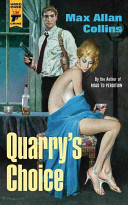
Max Allan Collins keeps playing Can You Top This with his Quarry books and damned if he doesn't keep on winning.
Quarry's Choice is remarkable for at least three reasons.
First, it is by far the longest and most ambitious novel in the series.
Second, it takes him to an unfamiliar land, the underbelly of the Deep South.
Three, it combines more violence and more tenderness than one has seen before in Quarry. And that, I know, is saying something.
The set-up goes this way. The Broker hires Quarry to put the hit on a man named Jack Killian. Seems that Killian is trying to take over the Strip in the town in all its underworld aspects, everything from hookers, drugs and kinky hotels. In the process he is spreading his resources to areas of the state run by others. This is making the Broker's friend Woodrow Colton unhappy. Colton owns a good share of the Biloxi Strip (part and parcel of the "Dixie Mafia") which he shares with Killian. Will Killian come after him? It is best for all concerned, both the Broker and Colton ("Woody") agree if Killian is killed. The Strip was quiet--the law was paid off and no one was hassled.Biloxi is a tourist attraction and Killian's violence will not only scare tourists away but also begin to attract attention from the FBI.
The Broker wants Quarry to infiltrate Killian's gang as a bodyguard. He thinks this will be the only way Quarry will have chance to kill him. Unlike the good ole boy Woody, Killian comes from a wealthy family of social standing and is a brilliant, cunning sociopath.
I mentioned that this is the most ambitious Quarry novel. I also mentioned that he takes us to the Deep South. Collins give us a detailed look at life in the Dixie Mafia and its environs. His descriptions of the various strip clubs, hotels, gambling casinos and mob hangouts give the word seediness new meaning. Presumably there are good and decent people in Biloxi but they don't appear anywhere in this novel.
The violence here is stunning and memorable. The lady with her ball peen hammer (she loves to crush skulls) is out of a horror movie. Collins knows that less is more so he gives us short but believable images of sudden and grisly death.
As for the tenderness...There are in each Quarry novel moments when Collins tries to reassure his readers (and Quarry) that the hit man kills not for pleasure but for money. The same with women. Quarry does his share of fuck fucking but there are always moments when Quarry begins to respond to the woman as a person and not just a hand job machine. Here we have little Lolita, a barely-legal prostitute that Woody "gives" Quarry. She appears through a good deal of the book and is one of the sweetest, saddest most appealing characters Collins has ever created.
Quarry's Choice is Quarry's masterpiece, a savage, twist-rich, sexy, wry and relentless tale of bad guys and even much worse bad guys.
POSTED BY ED GORMAN AT 4:39 PM 2 COMMENTS: LINKS TO THIS POST

SUNDAY, DECEMBER 29, 2013The Wrong Quarry Max Allan Collins
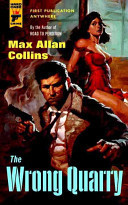
I've been reading Quarry novels since the early 1970s when they first appeared and I haven't read a bad one yet. Max Allan Collins has created a protagonist and a milieu that he has mastered. And unlike most series this one gets better as it ages.
At this point in his career--and it is a career make no mistake--Quarry now kills killers who've been hired to murder Quarry's clients. Approach a client, convince him he's in mortal danger and bingo you're on the payroll.
This is a particularly rich episode because of the detail Collins brings to the worlds of antiques and beauty pageants. The antique dealer and his partner are the killers and the beauty pageant maestro is a small town dance school instructor. Some years ago said instructor being suspected of murdering an heiress who also happened to be in one of his pageants. Quarry hires on to protect him.
I hate throwing in that overused (and often pretentious) word "subtext" but after all these Quarry books I've come to realize that for all his murderous ways and sexual conquests he is never in danger of becoming a cardboard cut out because Collins, from the git go, has made him an unhappy and restless figure.
In the books where he takes to his Wisconsin eyrie we see Quarry at rest and with something resembling peace of mind. Not only is the sex better here but it often blossoms into a real relationship with Quarry cutting through his own (sometime) psychological confusion and defenses and beginning to love one of his many women. I can't think of another hit man writer who would take a risk like that.
THE WRONG QUARRY is a special treat because Collins gets one of the great grand sociological targets of all time to sack--the beauty pageant. Collins goes after it with machete wit.
Another bonus here is the mystery at the center of the dance instructor's life. The long ago dead heiress. On top of all the excitement, Collins gives the readers an impeccably handled mystery.
Five stars.
POSTED BY ED GORMAN AT 2:12 PM NO COMMENTS: LINKS TO THIS POST
Published on December 30, 2015 13:08
December 29, 2015
Cool Classic Film and TV Cafe take Claudine Longet and the Death of Spider Sabich
Claudine Longet and the Death of Spider Sabich
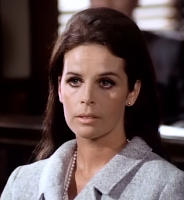 Claudine Longet on The Bold Ones.I recently watched a 1969 episode of The Bold Ones: The Lawyers called "The Rockford Riddle." It guest starred Claudine Longet as a woman accused of murdering her husband's mistress. Anyone who remembers the French actress/ singer will recognize the irony immediately. Eight years after this episode, she would be tried in a Colorado courtroom for reckless manslaughter in the death of her lover Vladimir "Spider" Sabich.
Claudine Longet on The Bold Ones.I recently watched a 1969 episode of The Bold Ones: The Lawyers called "The Rockford Riddle." It guest starred Claudine Longet as a woman accused of murdering her husband's mistress. Anyone who remembers the French actress/ singer will recognize the irony immediately. Eight years after this episode, she would be tried in a Colorado courtroom for reckless manslaughter in the death of her lover Vladimir "Spider" Sabich.Claudine Longet was born in Paris in 1942 and became a dancer at age 17. The demure beauty was trying to make it in Vegas when she caught the eye of entertainer Andy Williams. She was almost 20 and he was 34 when they married in 1961.
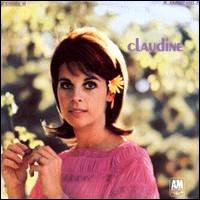 Williams was already an established star, having scored several top ten hits and a chart-topper with 1957's "Butterfly." He launched his long-running NBC TV series The Andy Williams Show in 1962 and Claudine made frequent appearances alongside her husband. Her voice, often described as girlish and breathy, was certainly distinctive, but she failed to score a hit single in the U.S. Her highest-charting single on the Billboard Hot 100 was "Love Is Blue" in 1968, which peaked at #71. Her albums fared better, with the self-titled Claudine reaching #11 and selling over 500,000 copies.
Williams was already an established star, having scored several top ten hits and a chart-topper with 1957's "Butterfly." He launched his long-running NBC TV series The Andy Williams Show in 1962 and Claudine made frequent appearances alongside her husband. Her voice, often described as girlish and breathy, was certainly distinctive, but she failed to score a hit single in the U.S. Her highest-charting single on the Billboard Hot 100 was "Love Is Blue" in 1968, which peaked at #71. Her albums fared better, with the self-titled Claudine reaching #11 and selling over 500,000 copies.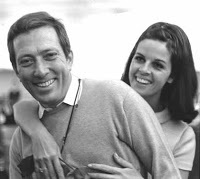 Andy Williams and Claudine Longet.She also branched out into acting and made guest appearances on TV series such as Hogan's Heroes, Run for Your Life, The Rat Patrol, and The Name of the Game. Her most successful theatrical film was Blake Edward's silly, but funny The Party (1968), which paired her effectively with Peter Sellers.
Andy Williams and Claudine Longet.She also branched out into acting and made guest appearances on TV series such as Hogan's Heroes, Run for Your Life, The Rat Patrol, and The Name of the Game. Her most successful theatrical film was Blake Edward's silly, but funny The Party (1968), which paired her effectively with Peter Sellers.Offscreen, she and Andy Williams had three children and became close friends with Robert and Ethel Kennedy. They appeared to be a blissful couple, but the marriage fell apart in the late 1960s. They separated in 1969 and divorced six years later.
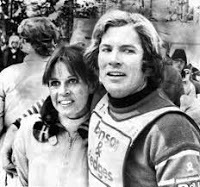 Longet with Spider Sabich.By 1976, Claudine Longet had moved in with her boyfriend, American skier Spider Sabich, in Aspen, Colorado. The grandson of Croatian immigrants, Sabich finished fifth in the slalom in the 1968 Olympics. After a moderately-successful career on the World Cup circuit, he turned professional after the 1970 season. Good-looking and charismatic, the popular Sabich won several professional championships and made a good living off endorsement deals. He and Longet met at a celebrity-pro benefit in 1972.
Longet with Spider Sabich.By 1976, Claudine Longet had moved in with her boyfriend, American skier Spider Sabich, in Aspen, Colorado. The grandson of Croatian immigrants, Sabich finished fifth in the slalom in the 1968 Olympics. After a moderately-successful career on the World Cup circuit, he turned professional after the 1970 season. Good-looking and charismatic, the popular Sabich won several professional championships and made a good living off endorsement deals. He and Longet met at a celebrity-pro benefit in 1972.On March 21, 1976, Sabich died from a gunshot wound to the abdomen. Various sources have different accounts about what happened on that afternoon. Most claim that Longet said Sabich's .22 caliber handgun accidentally discharged while he was showing her how it worked. After a police investigation, Longet was arrested and charged with reckless manslaughter (which carried a maximum penalty of 10 years in prison). She hired L.A. attorney Charles Weedman and Aspen lawyer Ron Austin.
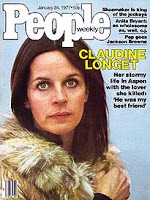 The trial drew national attention.Andy Williams supported his former spouse throughout her four-day trial. Evidence, to include a diary and blood and urine tests, were ruled inadmissible (police confiscated the diary without a warrant). After less than four hours of deliberation, the jury found Claudine Longet guilty of criminal negligence. The judge sentenced her to a $250 fine and 30 days in county jail, which did not have to be served consecutively. Sabich's family later filed a lawsuit against Longet, but it was settled out of court. According to some sources, the settlement contained a proviso that she could not write a book about Sabich.
The trial drew national attention.Andy Williams supported his former spouse throughout her four-day trial. Evidence, to include a diary and blood and urine tests, were ruled inadmissible (police confiscated the diary without a warrant). After less than four hours of deliberation, the jury found Claudine Longet guilty of criminal negligence. The judge sentenced her to a $250 fine and 30 days in county jail, which did not have to be served consecutively. Sabich's family later filed a lawsuit against Longet, but it was settled out of court. According to some sources, the settlement contained a proviso that she could not write a book about Sabich.Longet and her co-defense attorney Austin married in 1985 and currently live in Aspen. She will turn 74 in January.
Although Claudine Longet has kept a low profile over the years, she has remained a fixture in pop culture. Mick Jagger wrote a controversial song about her called (appropriately) "Claudine." It was pulled from the Rolling Stones 1980 album Emotional Rescue, but later appeared on a deluxe version of Some Girls. And in 1975, Saturday Night Live did a skit abut a skiing competition called the Claudine Longet Invitational, in which the skiers were "accidentally" shot by Longet. After receiving a cease-and-desist order, SNL producer Lorne Michaels issued a formal apology on the show the following week.
For more information on Claudine Longet's trial, you may want to seek out True Crimes: Celebrity Murder Stories by Ryan White and the article "Claudine Longet: Aspen Femme Fatale," which was published in a May 2013 issue of the British edition of GQ magazine.
You might also like:
Published on December 29, 2015 10:55
December 28, 2015
Lawrence Block Writing the Novel
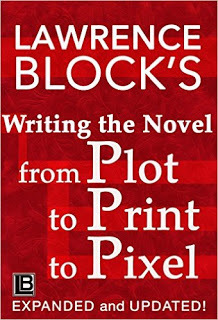 From Lawrence Block: Back in 1978, I wrote my first book for writers, Writing the Novel from Plot to Print. Writers Digest Books published it and kept it in print until three or four years ago, and for the past five years it's been eVailable as well.But, um, 1978 was a long time ago.So I've updated and expanded the book, enlarging it from 64,000 to 95,000 words. I've even updated the title (and enlarged it, come to think of it, by two words). The new book, WRITING THE NOVEL FROM PLOT TO PRINT TO PIXEL, includes new material on ebooks and self-publishing, and brings chapters on technique up to date without deleting any of the original material. (Which, after all, does seem to have stood a test or two of Time.)And—while I've got you here—let me wish you all the joys of the season, and everything good in the coming year.
From Lawrence Block: Back in 1978, I wrote my first book for writers, Writing the Novel from Plot to Print. Writers Digest Books published it and kept it in print until three or four years ago, and for the past five years it's been eVailable as well.But, um, 1978 was a long time ago.So I've updated and expanded the book, enlarging it from 64,000 to 95,000 words. I've even updated the title (and enlarged it, come to think of it, by two words). The new book, WRITING THE NOVEL FROM PLOT TO PRINT TO PIXEL, includes new material on ebooks and self-publishing, and brings chapters on technique up to date without deleting any of the original material. (Which, after all, does seem to have stood a test or two of Time.)And—while I've got you here—let me wish you all the joys of the season, and everything good in the coming year.Ed here:
Since the Seventies I've probably bought a dozen or so books on how to write good. I've kept two them and they're both by Larry Block.
First of all, as with most Block, the damned things are fun to read. He shares his stories of writerly failure and success with his usual wit, style (the best sentences in the business as I always say) and genuine wisdom. And he teaches you stuff. Useful, practical, serious stuff. I keep the two books on the shelf right of my desk. I pick them up all the time if only to make myself feel that maybe the piece I'm working on will not, after all, end my career. Larry makes you feel good about being a writer.
You will not find any rules as such, nor suggested gimmicks or formulas, and certainly no from on-high observations about Art vs. Commerce. (I once reading a writing good book that discussed symbolism and sub text without spending much time at all on telling a story.)
For me Larry is the last of the giants, Donald Westlake and Evan Hunter having passed. Who better, with such a long and varied and amazing career behind him, to share the wealth of his knowledge about writing (and hell, life) than Lawrence Block?
This is must-have material, folks. No kidding.
Published on December 28, 2015 09:08
December 27, 2015
How to Hate the Beatles By Nitsuh Abebe
Ed here: I don't hate the Beatles but I do think they've been so wildly over praised it's embarrassing. A number of their songs have stayed with me for decades but overall I always found them tedious, naive and pretentious. As for the British invasion, I'll take the Stones, the Animals and Cream any day. Steve Mertz and I offered this opinion at a party once and we quickly judged insane. I particularly despise "Let It Be" lyrics I know McCartny's Grammy said it but what it's saying is sure there's a war going on and race riots etc but I've got all the cash and all the babes so get it of my way or I'll run you down on my run to the limo. A long way from "Sister Cocaine" or any of the better Stones song (I know they weren't the innovators the Beatles/George Martin were but the Stones' best songs sound lot more modern now than most of the Beatles stuff.)
I await the death threats.
How to Hate the BeatlesBy Nitsuh Abebe268 Sharesfor the entire essay go here: http://www.vulture.com/2010/12/how_to...
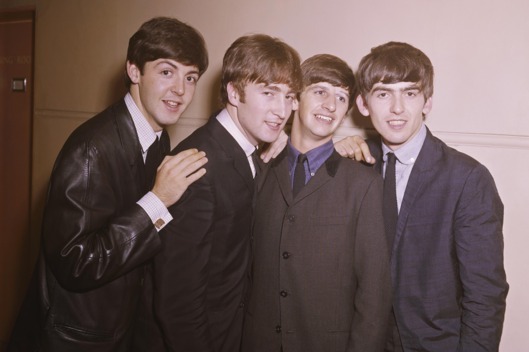
This story was originally published in December 2010, when the Beatles catalogue became available on iTunes. We are republishing now because the Beatles catalogue is becoming available on streaming.So you've probably heard: The Beatles' catalogue is now available for legal download via Apple's iTunes store. This development has been extremely well marketed and gotten tons of press. And somewhere in there, you may have seen flashes of irritation dismissiveness, eye-rolling, and complaint from those people who hate hearing about the Beatles, or maybe just hate the Beatles themselves, full stop.Hating the Beatles is an interesting business. I personally have always enjoyed them. But if you happen to be, like most people, more or less indifferent to them, I can understand the temptation to develop an active hatred, just because it's a lot more interesting than not caring either way. It suggests boldness, passion, and critical thinking on your part, you know? Do it at the right parties, and you can wind up standing in a corner looking like a delightful raconteur, with half a dozen people standing around you hanging on your every word, because they're desperate to convince you that you could not possibly hate the Beatles and must be mistaken somehow.For a lot of music lovers, though, hating the Beatles is a 101 class in basic contrarianism. So if you're going to do it, you should do it carefully and effectively. Here are some pointers.1. Make sure you like something interesting. As soon as you’ve announced that you hate the Beatles, the first question on some people’s minds will be what the hell you think is so much better, then, big shot. You need to answer this question in a way that confuses people. You can’t just say “Shostakovich” or “Mobb Deep” or “Dylan,” or else everyone will assume they already have your number: You hate the Beatles because you only listen to classical, or hip-hop, or are still fighting over the sixties. My advice is to pick two or three very different things you enjoy, just to underline that the people you’re talking to don’t know you like that, not yet. Maybe you prefer Chuck Berry, early Detroit techno, seventies German progressive rock, and TLC, all of which are awesome.2. Pick the right Beatles song to begrudgingly enjoy.
Published on December 27, 2015 14:53
December 26, 2015
Dreamer's Dozen Richard a Lupoff, Author-Great PW
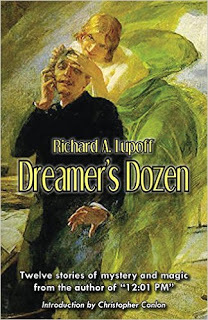 Dreamer's DozenRichard a Lupoff, Author
[image error]
Fans of Hugo-winner Lupoff (Claremont Tales) will welcome this collection of 12 short stories, many of them pastiches (in a variety of genres) written with obvious affection for the originals. "Dead Winter," a tribute to Rex Stout's Nero Wolfe set in the late 1930s, features a detective named Caligula Foxx, though unlike the sedentary Wolfe, Foxx doesn't hesitate to fire a gun at some fleeing bad guys during a car chase on the streets of New York. "Scorpion Men of Mars" contains prose that could have been written by Edgar Rice Burroughs himself ("Armed only with machetes, their flame-tempered blades honed from Venusian ironwood trees, the courageous sable-tressed Venusian maiden and I beat back our vegetable attackers"). In "Sisoh Promatem," a contrary take on Kafka's "Metamorphosis," a cockroach awakens in the body of a human. Another tale with an imaginative twist, "Greetings from Comrade Kim," explores a world in which Henry Wallace, not Harry Truman, succeeded FDR as president. Not every selection is a hit, but a fair number of readers are likely to agree with Christopher Conlon's assessment in his introduction that Lupoff is an "extraordinary literary chameleon." (May)
Dreamer's DozenRichard a Lupoff, Author
[image error]
Fans of Hugo-winner Lupoff (Claremont Tales) will welcome this collection of 12 short stories, many of them pastiches (in a variety of genres) written with obvious affection for the originals. "Dead Winter," a tribute to Rex Stout's Nero Wolfe set in the late 1930s, features a detective named Caligula Foxx, though unlike the sedentary Wolfe, Foxx doesn't hesitate to fire a gun at some fleeing bad guys during a car chase on the streets of New York. "Scorpion Men of Mars" contains prose that could have been written by Edgar Rice Burroughs himself ("Armed only with machetes, their flame-tempered blades honed from Venusian ironwood trees, the courageous sable-tressed Venusian maiden and I beat back our vegetable attackers"). In "Sisoh Promatem," a contrary take on Kafka's "Metamorphosis," a cockroach awakens in the body of a human. Another tale with an imaginative twist, "Greetings from Comrade Kim," explores a world in which Henry Wallace, not Harry Truman, succeeded FDR as president. Not every selection is a hit, but a fair number of readers are likely to agree with Christopher Conlon's assessment in his introduction that Lupoff is an "extraordinary literary chameleon." (May)
Published on December 26, 2015 14:11
December 25, 2015
Happy Holidays, folks; John D.
Ed here: Here's a particularly good piece from the great John D MacDonald site
The Trap of Solid Gold.
For those who didn't discover the works of John D MacDonald until after his death in 1986, it may be difficult for you to understand how quickly the author's name and works disappeared from the public imagination after that sad event. When MacDonald left for that fateful trip to Milwaukee in September all but two of his novels, anthologies and works of non-fiction were still in print. Each new work he published was eagerly greeted by both fans and critics alike, and were reviewed in nearly every periodical in the country that published such columns. He was a respected literary figure who was occasionally touted as the best selling living American author.
How quickly that changed.
As new product stopped appearing, the non-McGee novels gradually went out of print (except for The Executioners, titled Cape Fear), articles about the author stopped being written, and except for the world of mystery fans, MacDonald was the author of those Travis MxGee books, and that was if you remembered who hewas. McGee himself began to fall out of favor, even among JDM fans, as his "womanizing" (a spurious claim) began to be seen as everything from oh-so-politically incorrect to downright misogynistic.
One need look no further than the transcribed article below to understand just how carelessly his memory was treated, at least as far as the accuracy of the particulars of his life and writings are concerned. This profile appeared in the March 1989 issue of Gulfshore Life and was written by the late writer David T Warner, an associate of MacDonald's and a fellow Liar's Club member. Warner's heart was, as you will read, certainly in the right place here, but the number of inaccuracies he commits is nearly off the scale. Blame for this must lie at the doorstep of not only Warner but at that of his editor at Gulfshore Life, who probably only vaguely knew who John D MacDonald was. They didn't even spell his surname correctly!
I've taken the liberty of footnoting the most obvious errors and adding a few comments of my own.
For the rest go here:
http://thetrapofsolidgold.blogspot.co...
The Trap of Solid Gold.
For those who didn't discover the works of John D MacDonald until after his death in 1986, it may be difficult for you to understand how quickly the author's name and works disappeared from the public imagination after that sad event. When MacDonald left for that fateful trip to Milwaukee in September all but two of his novels, anthologies and works of non-fiction were still in print. Each new work he published was eagerly greeted by both fans and critics alike, and were reviewed in nearly every periodical in the country that published such columns. He was a respected literary figure who was occasionally touted as the best selling living American author.
How quickly that changed.
As new product stopped appearing, the non-McGee novels gradually went out of print (except for The Executioners, titled Cape Fear), articles about the author stopped being written, and except for the world of mystery fans, MacDonald was the author of those Travis MxGee books, and that was if you remembered who hewas. McGee himself began to fall out of favor, even among JDM fans, as his "womanizing" (a spurious claim) began to be seen as everything from oh-so-politically incorrect to downright misogynistic.
One need look no further than the transcribed article below to understand just how carelessly his memory was treated, at least as far as the accuracy of the particulars of his life and writings are concerned. This profile appeared in the March 1989 issue of Gulfshore Life and was written by the late writer David T Warner, an associate of MacDonald's and a fellow Liar's Club member. Warner's heart was, as you will read, certainly in the right place here, but the number of inaccuracies he commits is nearly off the scale. Blame for this must lie at the doorstep of not only Warner but at that of his editor at Gulfshore Life, who probably only vaguely knew who John D MacDonald was. They didn't even spell his surname correctly!
I've taken the liberty of footnoting the most obvious errors and adding a few comments of my own.
For the rest go here:
http://thetrapofsolidgold.blogspot.co...
Published on December 25, 2015 07:06
December 23, 2015
Forgotten Books: The Innocent Mrs. Duff by Elizabeth Sanxay Holding
TUESDAY, MAY 22, 2007THE INNOCENT MRS. DUFFOne of the more familiar knocks on mystery fiction is that it rarely treats death seriously. That too often murder is simply the device that propels the story and not much more. I think that's a fair criticism and I certainly include my own work as being guilty of that particular sin. Murder, even literary murder, should HURT.
I'd also add to that criticism the various addictions common to the genre, namely alcoholism and drug addiction. Only Lawrence Block and a few others have taken us into the real world of recovering alcoholics. For the most part addiction has become just another keystroke common to the world of mystery fiction.
I've read three novels in my life that have described accurately--in my experience as an alcoholic--the horrors of being drunk most of your life. Certainly Under The Volcano by Malcolm Lowry, After the First Death by Lawrence Block and a novel you've probably never heard of, though alcoholic Raymond Chandler pushed it as one of the finest suspense novels of his time.
For some reason, much as I've pushed her here, I'd never read THE INNOCENT MRS. DUFF by Elizabeth Sanxay Holding. It is remarkable in many ways, not least because the protagonis. Jacob Duff is drunk for virtually the entire novel. And we see 95% of the book through his eyes. Functionally drunk for most of it but also falling-down drunk in places. Holding's genius was to sustain a sense of dread that I don't think even Ruth Rendell has equaled. There are times in her novels when I have to put the book down for a few minutes. They are that claustrophobic in mood and action.
That's the first most remarkable aspect of the book. The second most remarkable is the fact that we see the book through the eyes of one of the most arrogant, self-invoved, cold and self-deluded man I've ever encountered in fiction of any kind. I hated the bastard so much--I'm not enamored of the upper-classes, alas, and Duff embodies everything I loathe about them--I almost gave up after chapter three. I wasn't sure I wanted to learn anything more about this jerk,
But Holding has the voodoo, at least for me. She makes me turn pages faster than any best-seller because what you're rushing to discover is the fate of her people. All the good folks in this one are women, especially Duff's younger, beautiful and very decent wife. He constantly compares her unfavorably to his first wife, though we soon learn that he didn't care much for his first wife, either. At age forty he's still looking for his dream woman. God have mercy on her soul if he ever finds her.
As always with Holding, as with much of Poe, what we have is not so much a plot (though she's as good as Christie) as a phantasmagoria of despair, distrust and suspicion that consumes the protagonist. Is his wife cheating on him? Is she setting up his death so she'll inherit his estate? Is she turning his young son against him? Has his wealthy aunt, his life-long mentor and mother confessor, taken the side of his young wife? Has his drinking disgraced him in his small town and are all those smirks aimed at him? And finally, is he a murderer? And why does he have to sneak around these days to drink?
If you're curious about Holding, this is a good place to start. Anthony Boucher always said that she was the mother of all psychological suspense novelists. What's intresting is how few, fifty-some years after her death, have come close to equaling her enormous powers.
posted by Ed Gorman @ 3:59 PM
Published on December 23, 2015 18:58
Ed Gorman's Blog
- Ed Gorman's profile
- 118 followers
Ed Gorman isn't a Goodreads Author
(yet),
but they
do have a blog,
so here are some recent posts imported from
their feed.



